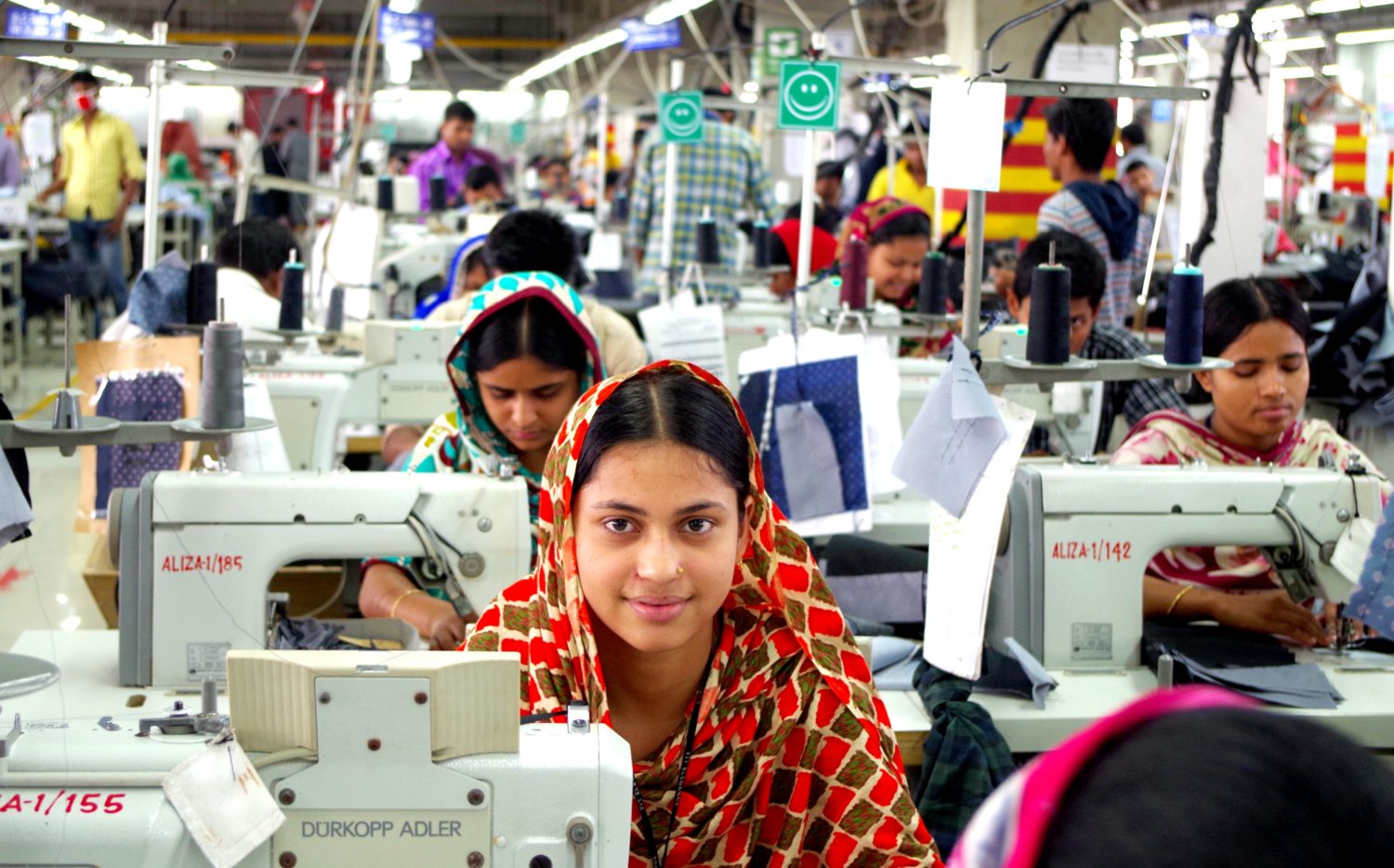5 Facts About the Garment Industry in Bangladesh

The garment industry in Bangladesh is the number one business in the country, accounting for 80% of the country’s exports. Four out of five of the 4.4 million workers employed in the garment industry in Bangladesh are women, so one can often consider issues facing this industry to be feminist issues. Here are five facts about the garment industry in Bangladesh including how they relate to feminism.
5 Facts About the Garment Industry in Bangladesh
- The garment industry in Bangladesh is huge. As previously stated, the garment industry is the number one business in the country. Bangladesh is the second-largest individual country in the world for apparel manufacturing, second only to China. H&M, Target and Marks and Spencer are among the global brands that contract with garment factories in Bangladesh for clothing production.
- The minimum wage is not a living wage. The average garment industry worker will work for 12 hours a day and make about $95 a month. The majority of these workers are women who support several relatives and live paycheck to paycheck. According to an international aid group Oxfam, only 2% of the price of an article of clothing that a person purchases in Australia go to the worker who made it. By contrast, a top fashion industry CEO will make in four days what a Bangladeshi garment factory worker will make in a lifetime.
- The garment industry in Bangladesh has a history of disaster. Two garment factory disasters, one in 2012 and one in 2013, left almost 1,200 garment factory workers dead. Following these incidents, many changes occurred to improve labor regulations and safety conditions in the garment factories. Many companies contracting with these factories also stepped up, paying full wages to workers unable to return, as well as providing compensation to injured workers and families of those who had died.
- The COVID-19 pandemic has hit the garment industry in Bangladesh hard. Millions of workers are unemployed due to the global pandemic. The Bangladesh Garment Manufacturer’s Export Association (BGMEA) reported that 1,025 factories experienced cancellations of export orders totaling 864.17 million items worth $2.81 billion. The BGMEA president also reported a 50% decrease in orders and does not expect the sales to bounce back for at least another year. Although Bangladeshi law requires employers to pay severance, few actually do. There are no unemployment benefits in Bangladesh. Many displaced garment workers fear that they will die of starvation if they do not die of COVID-19 first.
- Pre-existing shortcomings of the Bangladeshi garment industry are being highlighted. Longstanding issues of the industry include a lack of unity among the 16 trade unions, political pressure by industry owners and big brands, loopholes in the country’s labor laws and a disconnect between a practical living wage and the legal minimum wage. After most factories shut down because of COVID-19, the Bangladeshi government issued a $600 million bailout for all manufacturing industries in Bangladesh. The garment sector received the majority of this, but the amount barely covered about a month’s salary for all the workers in the garment industry.
Despite the seemingly dire state of the garment industry in Bangladesh in the face of constant poverty coupled with a global pandemic, some are making many efforts and are continuing to implement them in order to better the industry. The International Finance Corporation (IFC) has launched many efforts to better the garment industry in Bangladesh since the disasters of 2012 and 2013. One of these efforts is called the Gender Equality and Returns (GEAR) program which offers career progression opportunities for female sewing operators. They receive training in the soft and technical skills necessary for them to assume supervisory positions. The program also trains managers on how to select, promote and support female workers in the industry. Since the launch of this program, IFC has trained over 140 female sewing operators in 28 factories, 60% of whom received promotion weeks after completing the training. Remake, a nonprofit in San Francisco that aims to make the global fashion industry more humane and environmentally sustainable, has launched another effort. Recently, Remake has pressured big brands to pay back contractors in Bangladesh for whatever they ordered before the pandemic. Of these brands, 16 have already agreed to do so.
– Caroline Warrick-Schkolnik
Photo: Flickr
